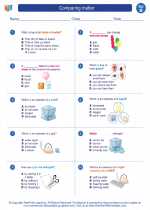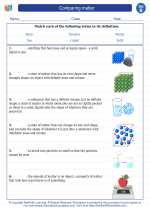Aggression
Aggression is a behavior that is intended to cause harm or pain to another living being. This behavior can be displayed by animals, including humans, as well as by insects and other organisms. Understanding the causes and effects of aggression is an important aspect of studying behavior in living organisms.
Causes of Aggression
- Genetics: Some research suggests that there may be genetic factors that contribute to aggressive behavior.
- Environmental Factors: The environment in which an organism is raised can also play a role in the development of aggressive behavior.
- Social Learning: Observing and imitating aggressive behavior from others, such as parents or peers, can contribute to the development of aggression.
- Neurobiological Factors: Changes in brain chemistry and function can influence aggressive behavior.
Effects of Aggression
Aggressive behavior can have a range of effects on individuals and their environments, including:
- Physical harm to the target of aggression
- Mental and emotional distress for both the aggressor and the target
- Disruption of social relationships and group dynamics
- Legal and ethical consequences for the aggressor
Study Guide
Here are some key points to remember when studying aggression:
- Define aggression and identify its different forms.
- Explore the causes of aggression, including genetic, environmental, and social factors.
- Examine the effects of aggression on individuals and their environments.
- Discuss strategies for managing and reducing aggressive behavior in different contexts.
- Reflect on ethical considerations related to studying and addressing aggression.
Remember to consider real-life examples of aggression and its impact on individuals and society when studying this topic.
[Aggression] Related Worksheets and Study Guides:
.◂Science Worksheets and Study Guides Second Grade. Comparing matter
Study Guide Comparing matter
Comparing matter  Activity Lesson
Activity Lesson Matter All Around
Matter All Around  Worksheet/Answer key
Worksheet/Answer key Comparing matter
Comparing matter  Worksheet/Answer key
Worksheet/Answer key Comparing matter
Comparing matter  Worksheet/Answer key
Worksheet/Answer key Comparing matter
Comparing matter  Vocabulary/Answer key
Vocabulary/Answer key Comparing matter
Comparing matter 

 Activity Lesson
Activity Lesson
 Worksheet/Answer key
Worksheet/Answer key
 Worksheet/Answer key
Worksheet/Answer key
 Worksheet/Answer key
Worksheet/Answer key
 Vocabulary/Answer key
Vocabulary/Answer key

The resources above cover the following skills:
PHYSICAL SCIENCE (NGSS)
Matter and its Interactions
Students who demonstrate understanding can:
Construct an argument with evidence that some changes caused by heating or cooling can be reversed and some cannot.